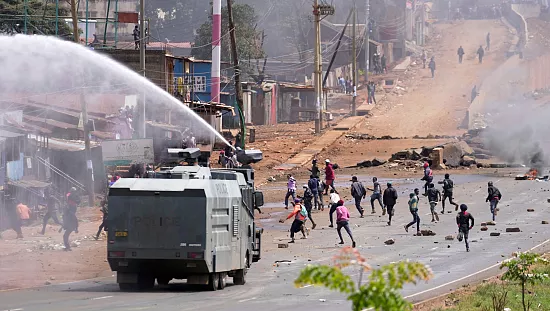
As the first rains of the season descend on the Nigerien capital, the city has launched a large-scale mosquito control operation targeting one of its busiest public spaces — the Central Market.
The intervention, carried out by municipal technical teams, marks a crucial step in a broader health protection campaign aimed at reducing the spread of mosquito-borne diseases such as malaria, dengue fever, and Zika virus.
The Central Market, located in the Niamey 5 Communal Arrondissement on the city’s right bank, is not only a commercial hub for thousands of daily visitors, but also a high-risk zone for mosquito breeding due to persistent stagnant water, blocked drainage systems, and accumulated waste.
Recognising the health threat, the city has launched a rigorous larvicide spraying effort, sealing off the area and deploying teams equipped with sprayers to attack mosquito breeding sites directly.
“We cannot wait for diseases to strike before taking action. Every drop of stagnant water is an enemy to be eliminated,” said one technical official overseeing the operation.
The campaign forms part of a wider strategy spearheaded by the municipality to tackle public health challenges during the rainy season, a period when humid conditions significantly increase mosquito activity.
According to health officials, more than 29,000 cases of malaria were recorded in the capital last rainy season alone.
This proactive strategy aims not only to reduce adult mosquito populations but also to disrupt the reproductive cycle by targeting larvae before they hatch.
Other at-risk neighborhoods, particularly those near the Niger River and in low-lying flood-prone zones, are expected to undergo similar interventions in the coming weeks.
Local vendors, though briefly affected by the disruption, have voiced support for the operation.
“It’s for our benefit and that of our customers. Mosquitoes don’t discriminate; they attack everyone,” said a vegetable seller at the Central Market.
The campaign is being led under the direction of Colonel Boubacar Soumana Garanké, Managing Director of the city council, following a high-level strategy meeting on July 8 focused on flood response and urban sanitation.
The mosquito control effort is just one facet of a broader urban health agenda, which will also include community sensitisation campaigns urging citizens to eliminate standing water near homes and use treated mosquito nets.
As the campaign expands, authorities hope to foster greater community involvement and awareness, transforming Niamey’s fight against mosquitoes into a collective effort.
With public health as a top priority, the city is laying the foundation for a safer, healthier future for its nearly two million residents.



